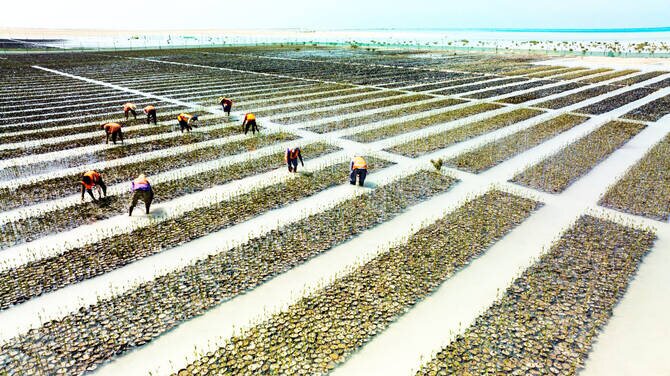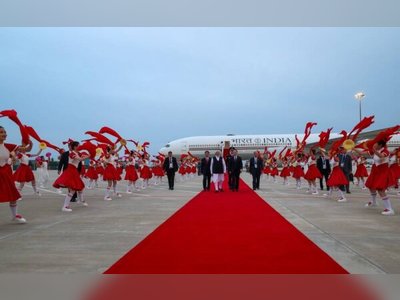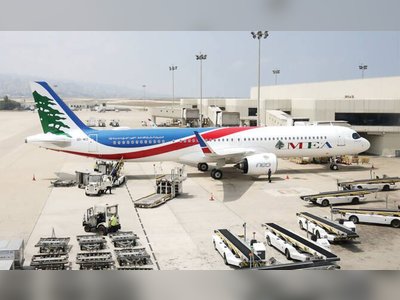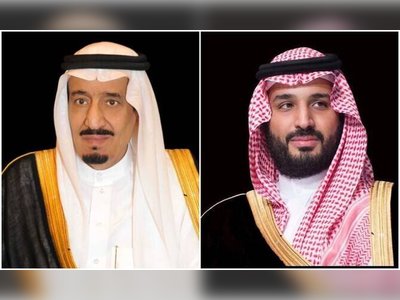
Saudi Arabia Restores Mangroves to Combat Climate Change and Boost Tourism
The kingdom scales up mangrove restoration efforts to combat climate change, protect coastal habitats, and diversify its tourism economy.
Saudi Arabia is intensifying its efforts to preserve and expand its mangrove forests as part of a broader strategy aimed at restoring coastal ecosystems, mitigating the impacts of climate change, and expanding the country's tourism sector.
As the world observes International Mangrove Day on July 26, initiatives are gaining momentum through cutting-edge technology, long-range planning, and public-private partnerships.
Mangroves, known as "nature's super ecosystems," are crucial for carbon storage, coastal protection, biodiversity support, and flood mitigation.
According to Raed Al-Basseet, group chief environment and sustainability officer at Red Sea Global, they offer numerous ecological benefits, including stabilization of coastlines, trapping pollutants, acting as carbon sinks, and providing habitats for marine life.
The Saudi Green Initiative (SGI), launched in 2021 with the aim of achieving net-zero emissions by 2060, includes a commitment to plant over 100 million mangrove trees by 2030.
This goal is part of a larger plan to plant 10 billion trees across the country in future decades, recognizing the significant role mangroves play in carbon sequestration and biodiversity support.
In addition to large-scale planting initiatives, projects such as those at Jeddah Islamic Port and under the National Center for Vegetation Cover Development and Combating Desertification showcase the technical precision required for successful mangrove cultivation.
Planting is strategically timed to avoid adverse weather conditions, and protective measures are in place to ensure the survival of young saplings.
The restoration of mangroves contributes not only to environmental goals but also has economic implications by supporting eco-tourism activities like kayaking, birdwatching, and nature tours.
This approach aligns with Saudi Arabia's Vision 2030 initiative aimed at diversifying its economy beyond oil revenues.
Mangrove conservation is increasingly recognized globally for its role in climate resilience.
As such, Saudi Arabia's efforts position the country as a leader not only on a regional level but also internationally in mangrove restoration and conservation strategies.
As the world observes International Mangrove Day on July 26, initiatives are gaining momentum through cutting-edge technology, long-range planning, and public-private partnerships.
Mangroves, known as "nature's super ecosystems," are crucial for carbon storage, coastal protection, biodiversity support, and flood mitigation.
According to Raed Al-Basseet, group chief environment and sustainability officer at Red Sea Global, they offer numerous ecological benefits, including stabilization of coastlines, trapping pollutants, acting as carbon sinks, and providing habitats for marine life.
The Saudi Green Initiative (SGI), launched in 2021 with the aim of achieving net-zero emissions by 2060, includes a commitment to plant over 100 million mangrove trees by 2030.
This goal is part of a larger plan to plant 10 billion trees across the country in future decades, recognizing the significant role mangroves play in carbon sequestration and biodiversity support.
In addition to large-scale planting initiatives, projects such as those at Jeddah Islamic Port and under the National Center for Vegetation Cover Development and Combating Desertification showcase the technical precision required for successful mangrove cultivation.
Planting is strategically timed to avoid adverse weather conditions, and protective measures are in place to ensure the survival of young saplings.
The restoration of mangroves contributes not only to environmental goals but also has economic implications by supporting eco-tourism activities like kayaking, birdwatching, and nature tours.
This approach aligns with Saudi Arabia's Vision 2030 initiative aimed at diversifying its economy beyond oil revenues.
Mangrove conservation is increasingly recognized globally for its role in climate resilience.
As such, Saudi Arabia's efforts position the country as a leader not only on a regional level but also internationally in mangrove restoration and conservation strategies.











